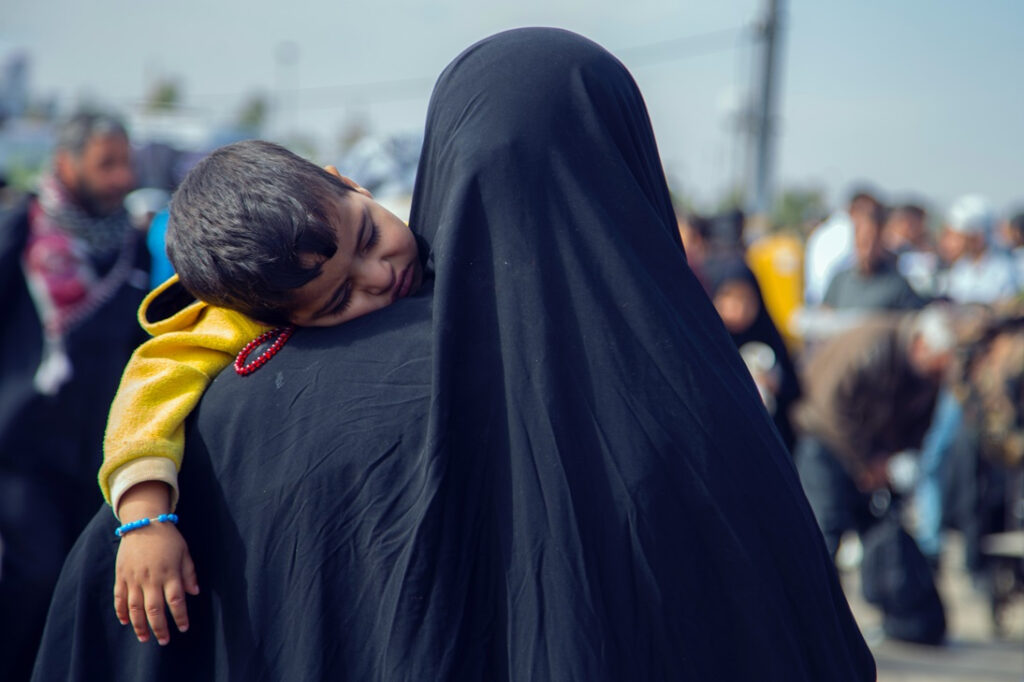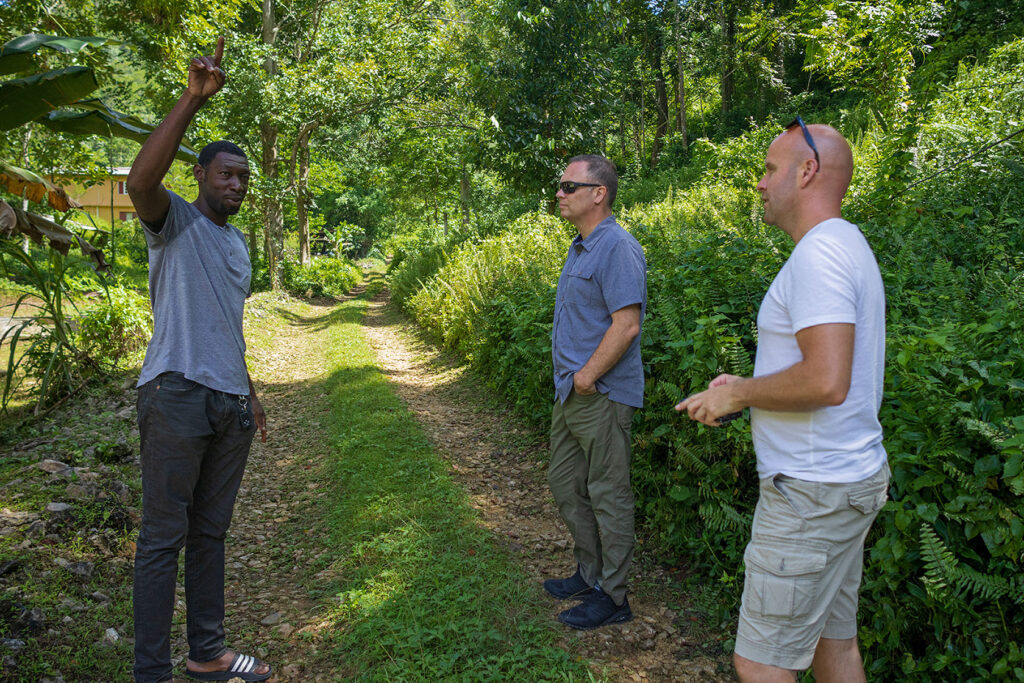So, as COVID-19 continues to spread rapidly, how will we respond? While our minds may know that we can completely trust God, our hearts are often a few steps behind. The theology in my head hasn’t changed since leaving for the mission field. However, my heart theology of peace and confident trust in God changes constantly and needs continual growth.
God first revealed the many fears in my heart as we ministered to AIDS hospice patients in South Africa. At that time, South Africa was the AIDS hotspot of the world. The people we ministered to often had tuberculosis (TB) or multiple drug-resistant TB, which is highly contagious and hard to treat. Our health was constantly at risk.
When faced with potential threats to our health, how would I respond?
The Response of Fear
It is one thing to trust God for our own personal safety; it is another thing to trust him with our children.
Part of our weekly ministry in South Africa was visiting hospice support groups for HIV+ patients. While we took all the possible precautions (no open cuts, etc.), bringing our four- and five-year-old daughters with us for the first time—as HIV+ patients greeted and hugged them—tested our heart theology. Would we respond in fear or faith?
Our natural tendency was to recoil in fear, but we knew that we were exactly where God wanted us to be. That simple act of faith, sacrificing what was most valuable to us (the safety of our daughters), showed love to those hurting people and opened many doors for the gospel. If we had responded in fear, those doors would have remained shut.
Through countless experiences like this, I discovered there are two directions our ungodly fears to take.
1. Fearing that God is not in control
To fear something is to fear that God is not in control of that thing.
This first kind of fear is rooted in distrusting God’s complete sovereignty, his eternal plan and control over all that comes to pass. Most of us believe in our heads that God is in control, but when a trial comes—I, at least, often find that my head and my heart react differently.
Fear arises when we focus on the storm and not the Lord. Like Peter, we quickly forget that God controls the storms. And, like Peter, we must fix our eyes on the Lord and take his hand as we walk through the trials of life.
We must remind ourselves that he is in complete control. Practically speaking, we do this when we obey the command to “be still and know” that he is God (Ps. 46:10). Not only must we fix our eyes on him, but we also present our requests to God. “I cry out to God Most High, to God who fulfills his purpose for me” (Ps. 57:2).
When we present our requests to God in faith, we are placing our burdens on his back. We must be careful not to pick them up again; they are not meant for us to carry.
2. Fearing that God’s will is not best for our life.
To fear something is to fear that God’s will is not best for our life.
This second kind of fear is rooted in not trusting God’s goodness, which flows out of his being. He is loving and merciful toward us. When we fear that God may allow something into our life that is detrimental, then we are fearing that God is not loving us. And personally, this is the fear I must battle the most.
We quickly forget that God acts from his eternal perspective. He knows what will help transform us into the person he wants us to be. He also knows what is best for our eternal good, not just for our present comfort. Anytime our comfort is threatened, we begin to fear because we love our comfort. We focus on maintaining our temporal comfort rather than improving upon our eternal joy. Therefore, when God lovingly gives us a trial as an opportunity to improve our eternal comfort, we instead react in fear as our temporal comfort is threatened.
To help us combat this fear, we must fix our eyes on two truths.
First, we must “seek the things that are above, where Christ is, seated at the right hand of God. Set your mind on the things above, not on the things that are on earth. For you have died, and your life is hidden with Christ in God. When Christ who is your life appears, then you also will appear with him in glory” (Col. 3:1-4). When we have a treasure that we cannot lose, we have a confident joy that cannot be shaken.
Second, we must remember that God is acting in love for our eternal good. “And we know that for those who love God all things work together for good” (Rom. 8:28). Trials have a purpose. Like a master surgeon cutting with a scalpel to remove cancer, God is refining our soul by removing sin. We must remember that all of God’s acts—all that he allows us to endure—come from a loving God. God is a merciful God! The psalmist writes: “Be merciful to me, O God, be merciful to me, for in you my soul takes refuge; in the shadow of your wings I will take refuge, till the storms of destruction pass by” (Ps. 57:1). We may be unable to see through the fog of life how God will use our current trials to work for our good, but we can trust in his love and mercy. He will lead us on the best path.
The Cavalier Response
Instead of responding in fear, a second response to threat is to be cavalier, showing a lack of proper concern. Some people use the truth of God’s sovereignty to disregard caution and common wisdom.
Here is where this gets personal. Each of us must:
- Do what God calls us to do. This is priority number one. Knowing what God has called us to do in ministry helps set our direction. Sometimes God redirects our location or the way we do ministry. (Consider the Apostle Paul.) We don’t always end up doing what we thought we would; trials are often God’s means of redirecting us.
- Use whatever means and precautions available. Doing what God calls us to do does not mean throwing caution to the wind. We can still use wisdom and discretion to make the best possible decisions in the direction God leads.
It is important to also recognize that God’s sovereignty does not eliminate man’s responsibility.
Proverbs 21:31 says, “The horse is prepared for the day of battle, but the victory belongs to the LORD.” Preparations are necessary (“the horse is prepared”), but they are not the cause of victory and success (“but the victory belongs to the LORD”). We should take all the precautions we can, but we must not rely on our precautions; rather, we must rely on the Lord.
Over the last 13 years, my wife and I have spent a lot of time learning how to strengthen our immune system so that we can minister better and longer. God could take health away in the blink of an eye, but we are responsible to do what is wise and best. We will have to give an account of how we used our talents— including how we take care of our body.
If I owned a business, and an employee was unable to work because of their lifestyle and decisions, as an employer I would not say, “Well done.” In the same way, if there are practices I do that sabotage my health and affect my ability to minister, they will affect my “well done”! I want to do everything I can to live in a healthy way so that I can serve the Lord as long as possible. This does not refer to the instances of unavoidable illness or disease that God allows to happen. However, it does refer to bad health that we bring on ourselves through neglect or poor habits. If my immune system is weak because of a poor diet, it makes me more susceptible to illnesses like COVID-19. If I know the right thing to do, will I do it? My choice will reveal my values. What will I value more: the “well done” or my autonomy?
Whether we are facing things like COVID-19 or simply maintaining our overall health, we must use all the knowledge at our disposal to prepare. But we must always remember that “victory belongs to the Lord.” We must walk by faith.
The Response of Faith
Faith is having peace and confidence in the reality that nothing gets to us that doesn’t pass through the hands of God, and nothing passes through his hands that is not for his glory and our eternal good.
When we fix our eyes on God and confidently hold his hand through the fog of difficulties—the result is a joy that spills into praise!
“I will give thanks to you, O Lord, among the peoples; I will sing praises to you among the nations. For your steadfast love is great to the heavens, your faithfulness to the clouds. Be exalted, O God above the heavens! Let your glory be over all the earth!” (Ps. 57: 9-11)
Normal life is full of trials, but in ministry you will face even more. God desires to refine us; Satan desires to destroy us. How well we learn to walk in faith will determine our longevity in ministry.
When we fix our eyes on the sovereign God who acts for our eternal good, we can walk through the storms with joyful confidence.
This doesn’t mean that the trials won’t hurt or that we may frolic carelessly through life . Rather, we are to be deeply rooted in unshakable joy while daily confronting pain and loss. We can have peace.
Believing this in your head takes a day, but embedding it into your heart takes a lifetime—and the journey is worth it.
Editor’s Note: This article was originally published April 3, 2020.




